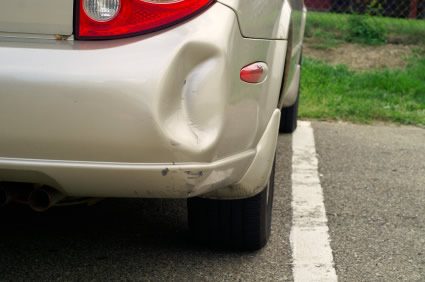 Will your car go to the body shop or the scrap heap? Will it be fixed or will be a
Will your car go to the body shop or the scrap heap? Will it be fixed or will be a
total loss? It depends on where you live and who your insurance company is.
Legally, insurers are required to declare a car totaled and apply for a
salvage title once damage reaches a certain point under your state's law. For example, a car with damage totaling 75 percent of its value is totaled in New York but considered repairable in Texas, where the threshold is 100 percent.
In states without a specific threshold percentage, TLF refers to the "total loss formula": cost of repairs plus scrap value must equal the pre-accident value of the car.
Why is my car a total loss?
Insurers are totaling more vehicles than ever. According to claims expert CCC Information Services, in 2000 roughly 9 percent of all vehicles that came in for an appraisal were totaled. By 2012 that number was up to 14 percent.
You may think the damage to your vehicle is minimal, but your insurer is looking at it with different eyes.
Your insurance company doesn't care about your fond memories, sentimental attachment, or the fact that you might not be able to afford a new car. It's all business: The bottom line is that it is going to take the cheapest option.
The criteria for making a decision on totaling a vehicle is different for every insurer and in many cases it is dictated by state law, but the basic formula is usually the same. If repair costs reach a certain threshold of the actual cash value (ACV) of the car, say goodbye to your ride.
According to attorney Thomas Simeone with Simeone & Miller, "Legally, the most an insurance company is liable for is the actual cash value of the vehicle at the time of the accident. Their decision will be based on whether it is cheaper to repair the car back to that condition or simply write you a check and total the vehicle."
The total-loss process explained
An appraiser will examine the car and calculate not only the cost of repairs but also your car's pre-accident cash value, considering make, model, year, options, mileage and condition.
While total-loss thresholds may be mandated by state law, they rarely come into play. Even though insurers are required to total the cars that are over these thresholds, they can and do total many vehicles that are under the threshold.
"Insurance carriers that operate in multiple states have an internal mechanism for assessing total-loss levels so as to be consistent regardless of where the vehicle is located," says Tony Rached of Total Loss Appraisals in Alpharetta, Ga., says.
That may be why total-loss thresholds seem to have little bearing on the actual number of total-loss claims in a state. The Midwest has some of the lowest thresholds, which should lead to a high number of total loss claims, but according to CCC Information Services, the region has the second-lowest percentage of total loss claims at 13 percent. They don't seem to have any affect on
state car insurance rates, either.
What can you do?
Total-loss claims are often frustrating. This is especially true when it comes to determining value for your vehicle. Pete Moraga with the Insurance Information Network of California offers a few tips for making the process more bearable:
- Keep in mind that a "one size fits all" valuation never works
- If the total loss is not your fault, you should be compensated for a rental car
- Be patient, as some of these types of claims may be complicated
- Start shopping for a new car as soon as possible, rental car coverage is usually good for only 30 days or until a settlement offer is made.
If you just love your car and don't want to see it junked, or you are unhappy with the settlement amount, then you can:
Buy it back: If you really want to keep your car, most insurers will oblige. Your insurance company will write a check for the actual cash value of the vehicle minus your deductible as well as the salvage value.
While you still have your car, it is now up to you to repair it. In addition, the car now has a salvage title attached to it, which can make it more difficult to insure, even if it has been repaired.
Challenge the appraisal: If you are unhappy with their number, challenge it. While most appraisers will bump their offer up $500 just for asking, any more than that and you will have to earn it. Look at the comparables they used and find others that tilt the money in your direction. If they still won't budge, consider hiring an independent appraiser to produce a report.
Total it: If you are close to the threshold and would prefer your car be totaled, think about making a
diminished value claim. A car that has been in an accident and repaired is worth much less than a clean car. Appraiser Rached says, "If the owner has a solid case of diminished value, they can argue that the total claim payout (including diminished value) will exceed the vehicle's actual cash value, forcing them to total the car for financial reasons."
